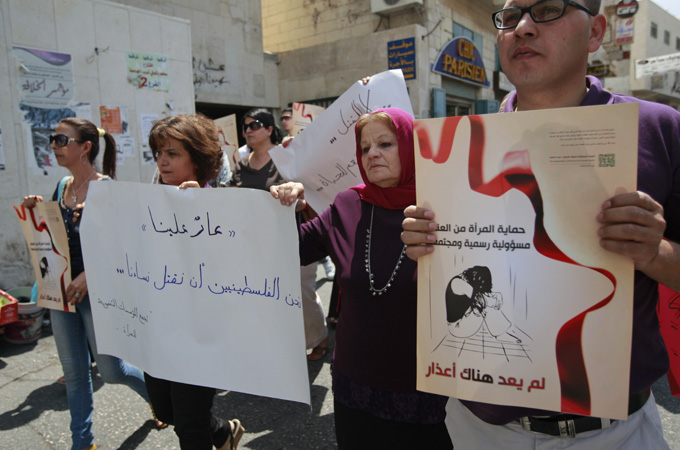By Mark McMurray
Impunity Watch Reporter, Middle East
RAMALLAH, West Bank — On Monday, scores of people witnessed a woman having her throat slashed in an open-air Bethlehem market in broad daylight. The prime suspect, the woman’s husband, was arrested at the scene.

Nancy Zaboun, a 27-year-old mother of three, had recently sought a divorce from her abusive husband. According to the Ma’an News Agency, the police reported that her husband had beaten her Sunday evening. When the police arrived at the scene that night, they only asked him to sign a pledge not to beat his wife again. The next day, she was fatally wounded on a path at a market situated near the Church of the Nativity, the traditional birthplace of Jesus Christ. She was walking on the path after having just attended a hearing in her divorce case from her husband of ten years.
Khaula al-Azraq, director of a counseling center in the West Bank where Zaboun went for assistance, said Shadi Abedallah, Zaboun’s 32-year-old husband, beat his wife regularly. The beatings were so severe at times that Zaboun would have to be hospitalized after the attacks. Despite having repeatedly assaulted his wife, Abedallah was never arrested. Similar to their response to Sunday’s beating, the police would only make Abedallah, himself a former police officer, sign promises not to hit his wife in the future. That makes the response to his behavior even more suspicious.
Almost immediately after their wedding, Abdellah began beating Zaboun. Local authorities reportedly stepped in at some point to resolve the violence, only to later rule the situation a family dispute. Abdel Fattah Hemayel, the district governor of Bethlehem, confirmed the description of the situation by police and the pledges they had Abdellah sign.
The heinous nature of the attack has caused a strong reaction within Palestinian society. On Wednesday, several dozen women and women’s rights activists held a rally in the area where Zaboun was killed. They called for stronger laws to end violence against women. While holding signs stating things such as “Shame Palestinians for killing our women,” the demonstrators chanted, “No to violence against women.”
Rabiha Diab, the Palestinian government’s women’s affairs minister, has also called for justice. “We should set an example because…he slaughtered her like a sheep,” she said. Diab has called on the police to look at what they can do to end violence against women. “Every once in a while, there is a case that makes us feel worried and afraid that we are going back to square one [as women],” she added.
For further information, please see:
Arutz Sheva – Arab Protest in Bethlehem Slams Violence Against Women – 2 August 2012
LA Times – Palestinian Women’s Killings Spark Outcry Over Lax Laws – 2 August 2012
Al Jazeera – Palestinians Protest Murder of Battered Wife – 1 August 2012
Ma’an News Agency – Protesters Call For Stricter Laws After Woman Stabbed to Death – 1 August 2012



